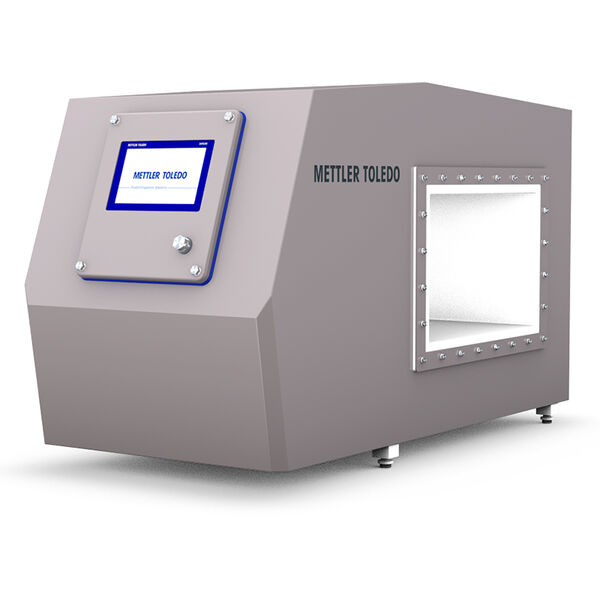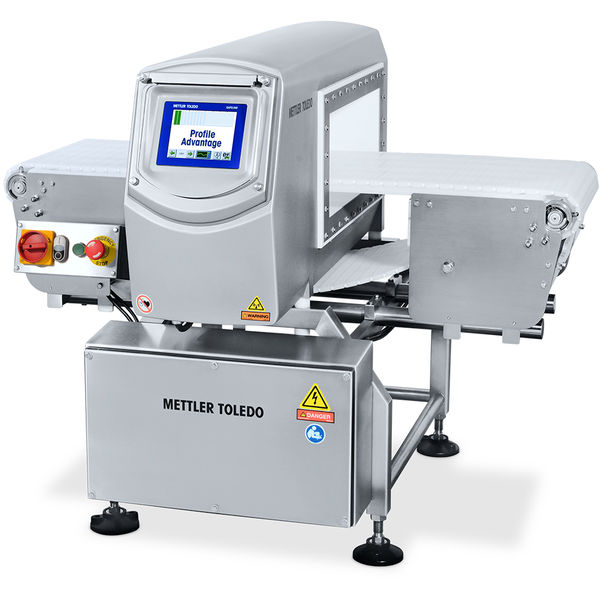
Metal Detector for Ferrous and Non-Ferrous Metals
Metal detection systems to detect various ferrous and non-ferrous metals in industrial applications
Our advanced metal detection systems can detect and reject metal contaminants from your production line. It’s important to use an industrial metal detector for detecting ferrous and non-ferrous metals in your production to help optimize quality control and preserve brand integrity. We specialize in systems that can reject various metal contaminants in packaged, non-packaged, frozen, wet, or liquid food applications, as well as capsules, powders, and other pharma or non-food applications.
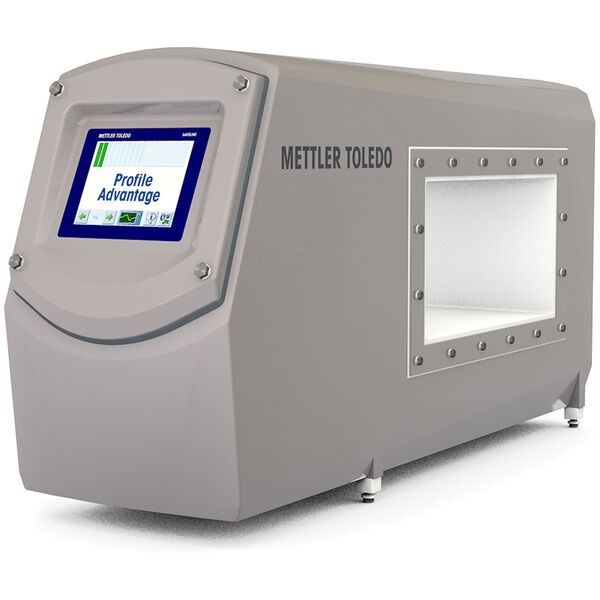
Profile Advantage Metal Detector
Safeline's most advanced food metal detector, which delivers up to 50 percent improved sensitivity when inspecting wet, hot, chilled, cooling, or metal film-packed products.
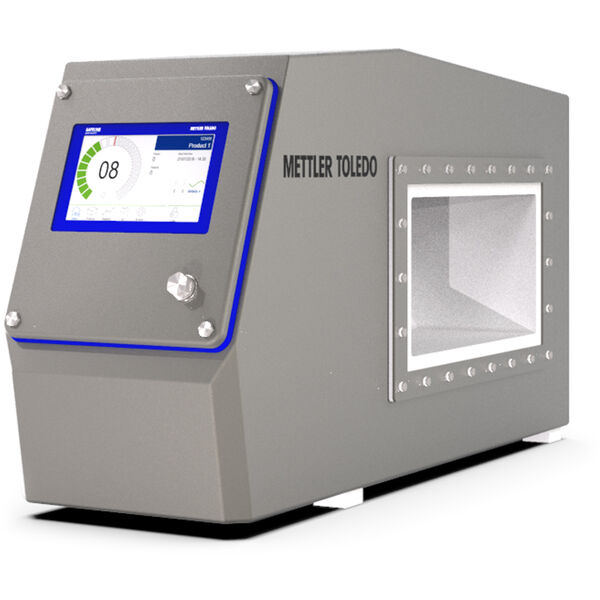
Metal Detector M31R
Next generation industrial metal detector delivers high sensitivity with ease of use to deliver affordable quality control. Suitable for dry or wet product inspection.
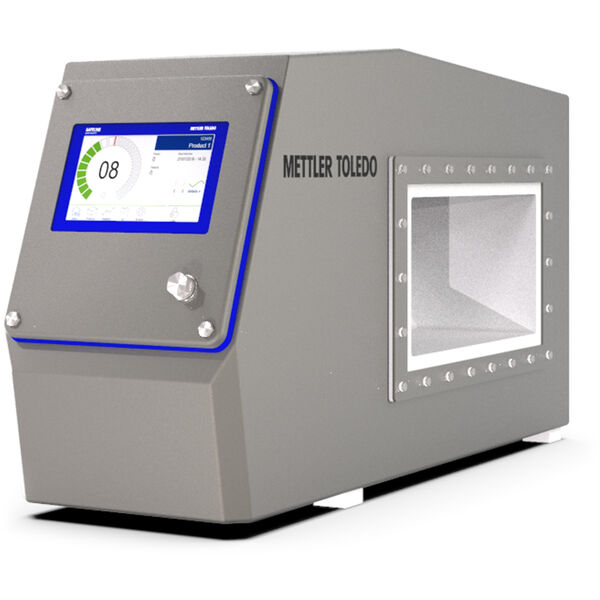
Metal Detector M33R
Next generation industrial metal detector offers a step-change in performance and very high sensitivity. Suitable for dry or deep frozen products inspection.
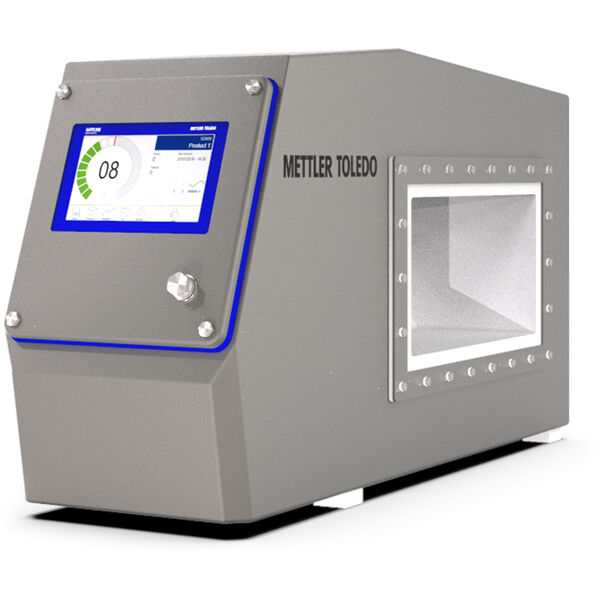
Metal Detector M34R
Next generation industrial metal detector with Dual-Simultaneous Frequency (DSF) technology offering very high sensitivity. Ideal for wet or metal film-packed products inspection.
Maximize Your Return on Investment by Ensuring Professional Installation and Right Care Package
Maximize Your Return on Investment by Ensuring Professional Installation and Right Care Package
New Remote Support
Keeping Your Production Running
In addition to our existing 24/7 technical phone support, we offer the latest in remote service support using Augmented Reality (AR) technology. This allows us to provide the quick expert support you need to achieve your productivity goals.
Our METTLER TOLEDO augmented reality-powered visual remote assistance solution helps us to fully understand your service issues. Using a mobile device with an integrated camera enables us to see exactly what you see. We can guide you step-by-step to resolve the issue by providing real-time contextual assistance, such as adding text, drawings, or highlighting objects with 3D markers. Benefit from the fastest fault diagnostics, repair, and part replacement support by using the latest technology. We can also remotely connect to some of our products for additional service enhancement. Please contact your local service team for more details.
Explore our Services
Uptime. Support & Repair
Performance. Maintenance & Optimization
Compliance. Calibration & Quality
Expertise. Training & Consulting
- Bakery Production Metal Detection
- Conveyor & Tunnel Metal Detection Systems
- Gravity Fall Metal Detectors
- Industrial Metal Detector for Agriculture
- Industrial Metal Detector for Cosmetics
- Industrial Metal Detector for Flour and Grain Industry
- Industrial Metal Detector for Meat Processing
- Industrial Metal Detector for the Chemical Industry
- Industrial Metal Detectors for Plastics
- Industrial Metal Detectors for the Dairy Industry
- Industrial Metal Detectors for the Seafood Industry
- Industrial Metal Detectors for the Sugar Industry
- Metal Detection in Ready Meals
- Metal Detection Technology for Snacks and Confectionery
- Metal Detectors for Food Processing
- Metal Detectors for Meat, Poultry and Seafood Production
- Metal Detectors for Pet Food
- Metal Detectors for Pulp and Paper
- Metal Detectors for the Food Industry
- Pharmaceutical Metal Detectors
- Pipeline Metal Detectors
- Throat Metal Detectors
FAQs
What metal contaminants can industrial metal detection systems detect?
Our industrial metal detection systems can detect and reject a range of ferrous, non-ferrous, and stainless-steel metal contaminants.
There are many ways metal contamination can enter your products. They can be found in raw materials such as fishhooks in seafood, through machinery wear and tear, during maintenance practices (washers and bolts), or even accidentally through employee personal effects like jewelry.
What’s the difference between ferrous and non-ferrous metals?
When detecting metal in industrial applications, ferrous and non-ferrous metals can be distinguished by their many properties. The simplest way of defining the difference is that ferrous metals contain iron and non-ferrous metals do not.
Examples of ferrous metals include stainless steel, carbon steel, and cast iron. Examples of non-ferrous metals include copper, aluminum, and nickel.
One common property of ferrous metals is that they are often magnetic. However, you can also find some contamination risks from non-magnetic stainless steels, which is why you need an advanced industrial metal detector for detecting ferrous and non-ferrous metals of all types.
How can spherical sensitivity affect how metal contamination is detected?
Spherical sensitivity is a crucial aspect of your industrial metal detection system, and acts as a measurement of how a system detects different shapes, sizes, and types of metal contaminants. The higher the level of sensitivity, the smaller the ferrous and non-ferrous metal contaminants that can be detected.
However, certain factors can affect the level of sensitivity of the metal detection system. These factors need to be taken into account in order to help increase the effectiveness of your inspection process.
Many factors can affect metal detection for detecting metal inclusions in industrial processes such as whether the metal is ferrous or non-ferrous, the physical form of the product being inspected, the size and shape of the metal, the temperature of the product at inspection, and much more.
We offer a wide range of metal detection systems with various sensitivity options to help you find the right industrial metal detector for detecting ferrous and non-ferrous metals.
Why is it important to reject ferrous and non-ferrous metal contaminants from industrial applications?
Using an industrial metal detector for detecting ferrous and non-ferrous metals in your industrial food, non-food, and pharma applications is crucial for a wide number of reasons. These include:
- Reducing costs from having to unnecessarily dispose of uncontaminated products
- Supporting compliance with industry standards
- Using metal detection for product recalls prevention
- Solidifying your brand integrity, so customers and businesses can rely on your products to be free of metal contamination
